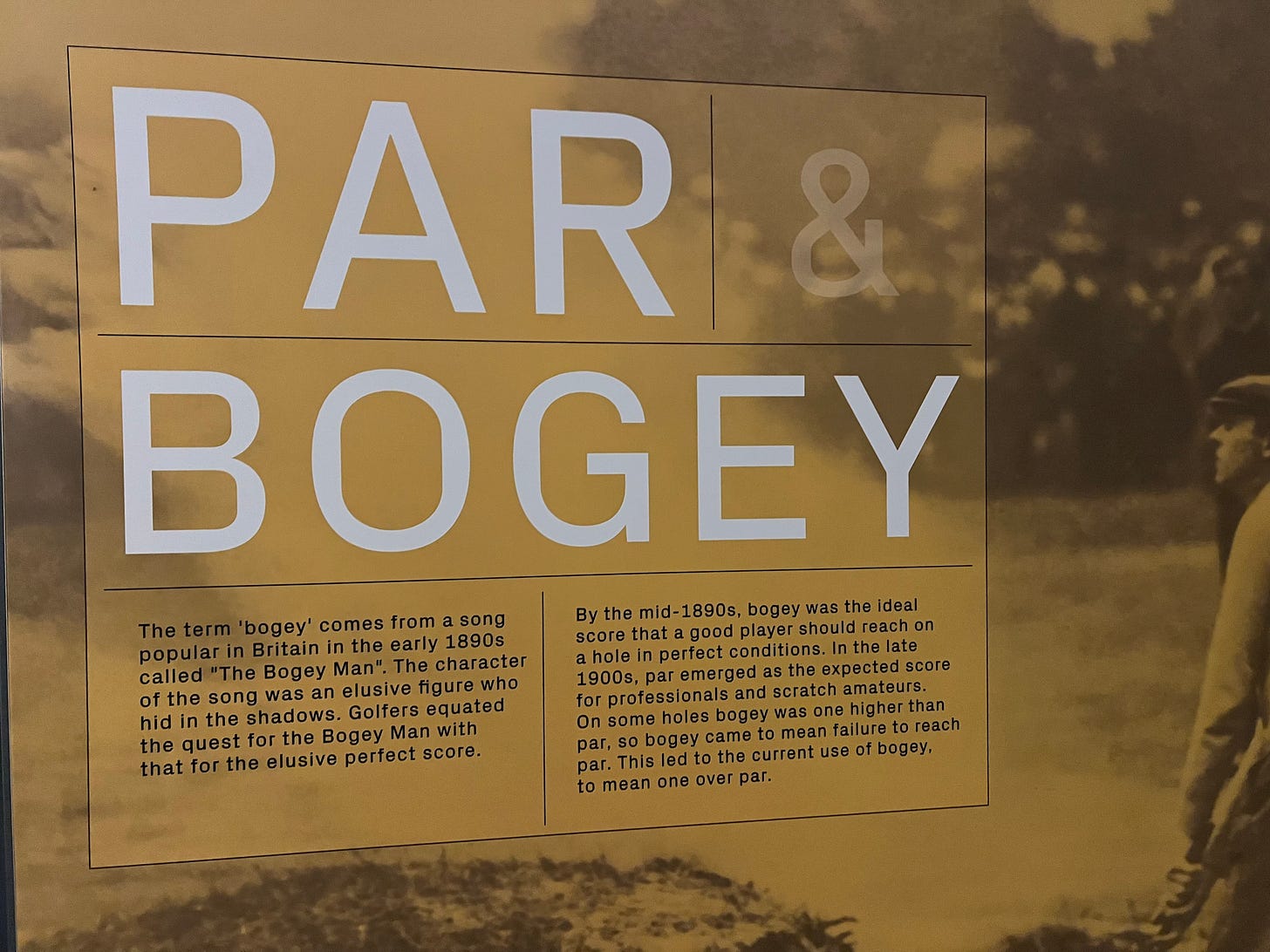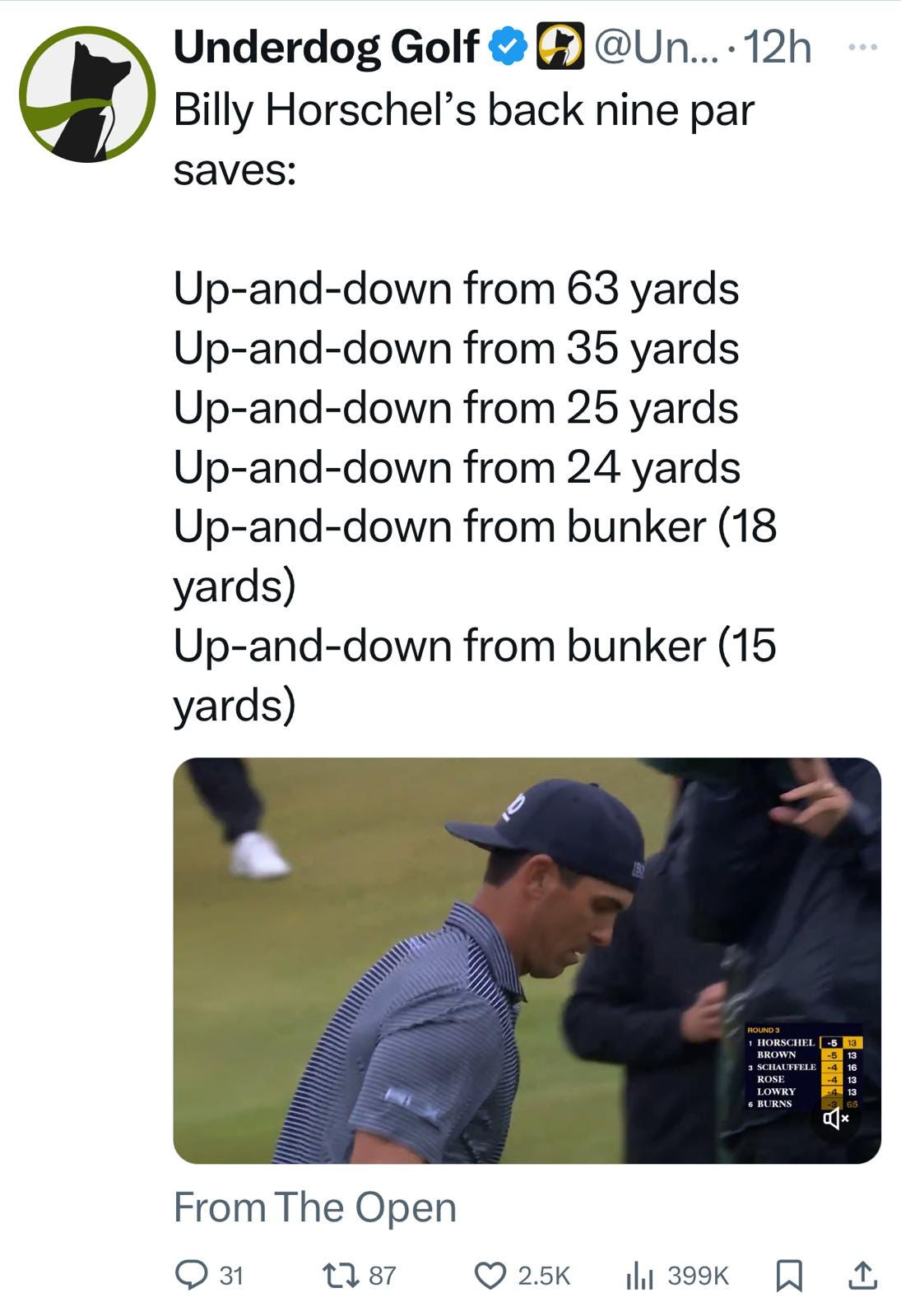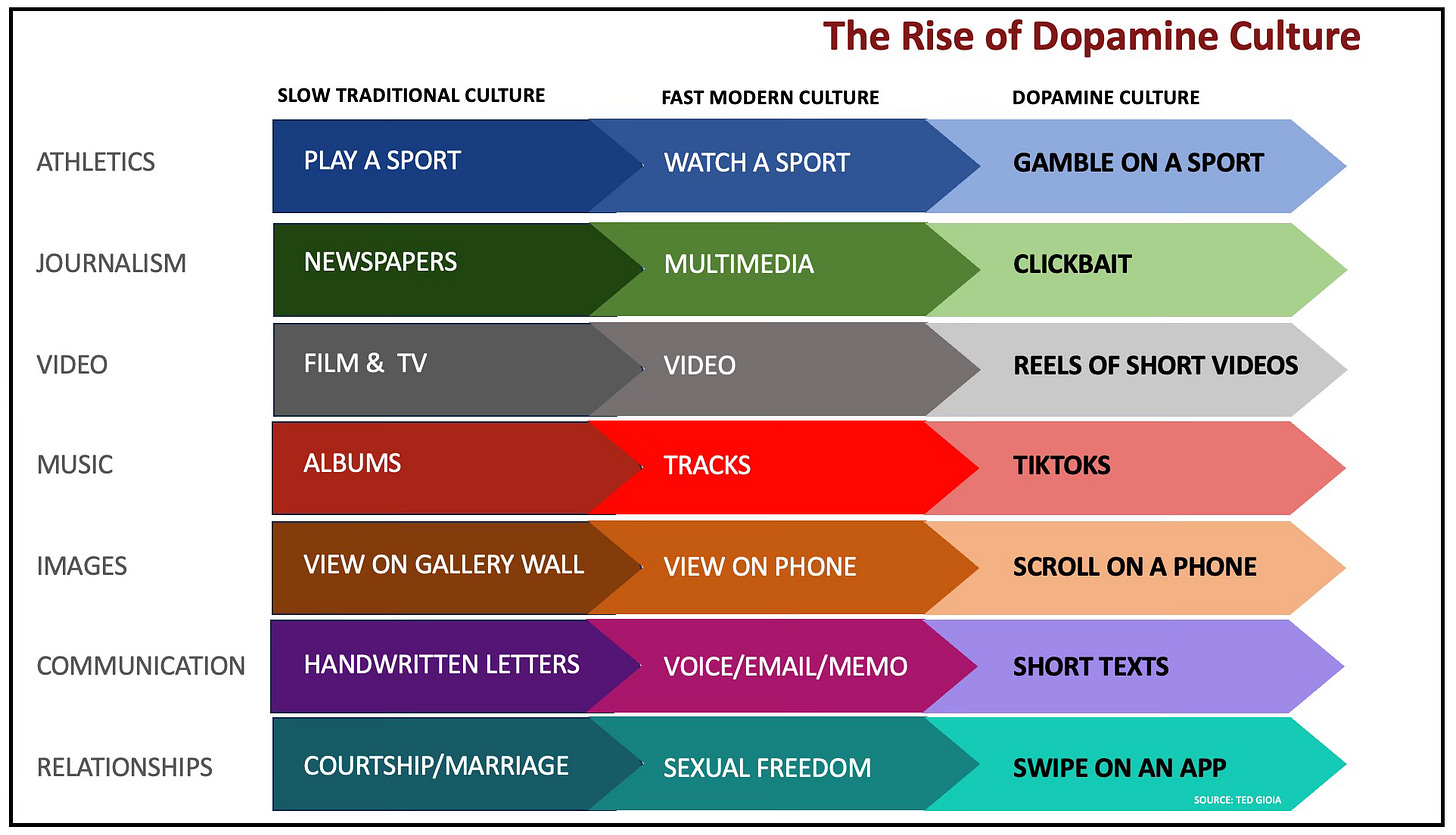I think it was Sam Sadi who told the anecdote, about taking his son to a big football match and the kid complaining that it was boring; He’d only watched football on TikTok, so was expecting a highlights reel of goals, fouls and moments of VAR controversy.
In other words, he’d been sold entertainment and got sport.
In a similar vein, I asked Warren Gatland what was the best game he’d watched. It wasn’t a 38-36 try fest, but a low scoring, attritional battle between the All Blacks and South Africa.
To real fans, the grind is everything.
The real thing, not the highlight reel.
The basic challenge of sports marketing today is that there are not enough sports fans to maintain the industry in the style to which it has become accustomed.
Which gets us to The Open Championship.
It’s the best event in golf.
Anyone reading this doesn’t need me to bore you with why.
History, authenticity, relevance, character, skill; All the big words apply.
Michael Bamberger’s outro captured it:
This is the most major of majors, and this is the most promising Sunday golf has had this year.
In the dusk light on Saturday, the clubhouse was packed with the coat-and-tie crowd. In town, a Ferris wheel was empty and idle. Troon is a good-time holiday town, on long summer nights. This was not one of them. This was a night with golfers on edge. How delicious.
Love ‘golfers on edge’.
In the LIV era, the best male golfers in the world live a very long way from the edge.
Let’s just say, they sleep ok most nights.
Just not this week.
This week, they’ve been exposed.
Some have embraced it, others whined about it.
And we’ll remember who was who.
Same product, different audiences
The problem, highlighted above, is that inherent in the Sport as Entertainment argument is a promise: that the (very high) price of the ticket guarantees the highlight reel.
Big Eventers will leave Troon disappointed that it wasn’t The Duel in the Sun, (Version 1 or 2) or that real life isn’t a Rolex ad (worst copywriting in the advertising industry btw, I’ll accept no arguments).
They’ll equate the rain and wind with a bad Glastonbury.
They’ll moan that some of the big players missed the cut and because of this they will view the event as a failure.
By contrast, golf fans will leave knowing they’ve seen something special.
To them, Billy Horschel’s back nine on Saturday IS entertainment:
So, two audiences, with two very different definitions of sport-as-entertainment.
Sport-as-Entertainment is a worldview that’s permeated the sports marketing industry, a counter to the big, existential fear: The kids are revolting, and their consumption habits won’t be as easily monetised as that of their parents.
But when every sport is chasing the same audience, you quickly get to a basic marketing problem, which is differentiation.
When everything’s a doom scroll, what is football, rugby, cricket, tennis…and this week, golf?
Which gets to the best piece written this year.
What is golf in the era of dopamine culture?
This is a question I ask quite often, on podcasts and at our live events.
It arises from this article by Ted Gioia on The Rise of Dopamine Culture.
You see, the Sport-as-Entertainment thing feels like an old battle.
Whenever I hear someone say, ‘our competition is Netflix or Roblox’, I think of these two graphics.
As Gioia puts it, this is more than just the hot trend of 2024. It can last forever—because it’s based on body chemistry, not fashion or aesthetics.
Our phones have turned us in to addicts chasing dopamine hits.
Only now it is getting applied to culture and the creative world—and billions of people. They are unwitting volunteers in the largest social engineering experiment in human history.
So you need to ditch that simple model of art versus entertainment. And even ‘distraction’ is just a stepping stone toward the real goal nowadays—which is addiction.
Here’s the future cultural food chain—pursued aggressively by tech platforms that now dominate every aspect of our lives.
This is a bleak conclusion.
But only if you view sport as just another form of entertainment.
Of course, one outcome of the phone era is sport as clip content and betting fodder.
But what else is it?
Subscribe to Unofficial Partner Newsletters.
Our tens of thousands of followers get a full fat weekly analysis of the sports business delivered every Thursday.






This piece really resonated, thank you Richard.
I think there is a great opportunity for many sports to be much more self assured at the elite level.
So much value (in all senses) originates from, and is reliant upon, the continued good health of each sport's 'heart and soul' e.g., Test cricket, major championship golf, international netball, Grand Slam tennis, etc.
They offer both anchor and aspiration. They're pre-requisites that enable innovation and 'brand stretch'; they create permission for variations in quality, quantity, format, duration, fan engagement, etc.
Elite sport, like life, is at its best where there are contrasts. The dopamine never delivers fulfilment.
No amount of social media highlights of sunny birdies and eagles at a tour event would ever come close to watching the leaders battle through those Round 3 conditions at Royal Troon; no amount of social media highlights of sixes in T20 cricket could match watching Ben Stokes at Headingley at 4 o'clock in the morning in Australia in 2019!
This is one of the best and most concise articles I have read on the challenge facing sport. Entertainment versus Sport rather than Sport as Entertainment. Very interesting indeed. Thanks for the post.